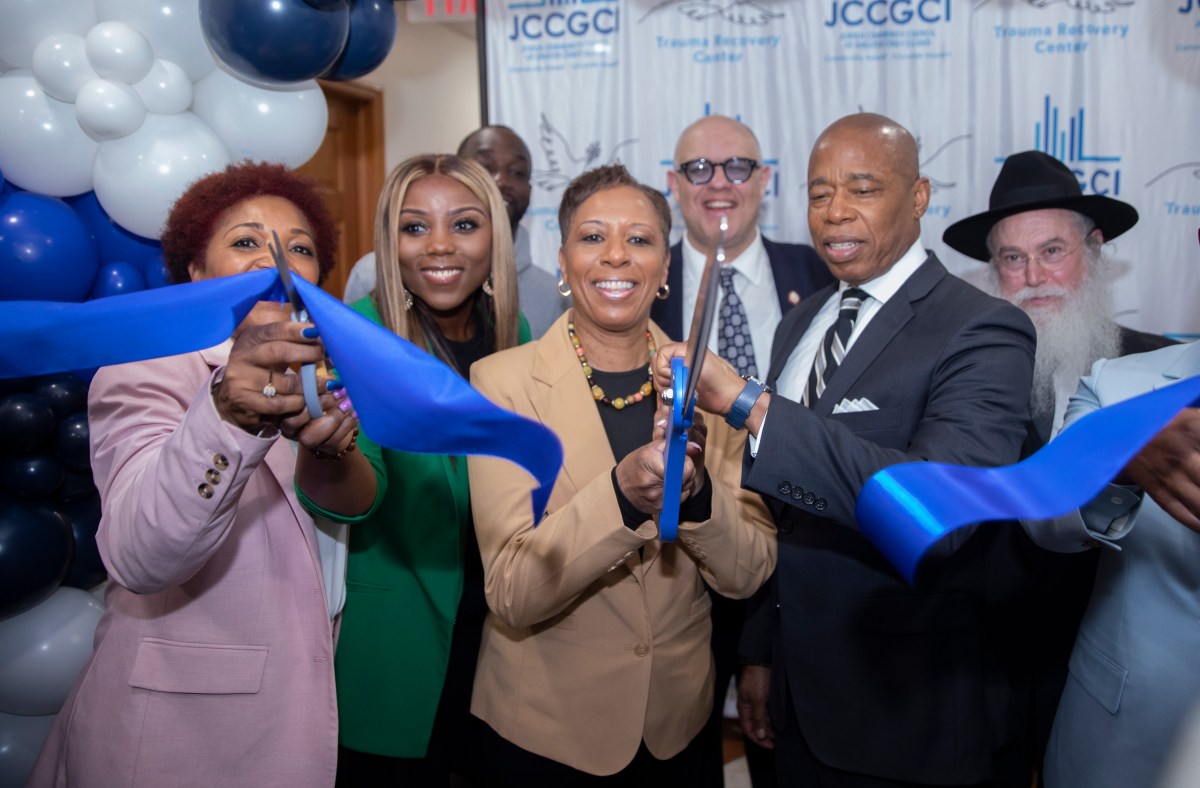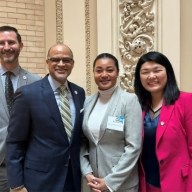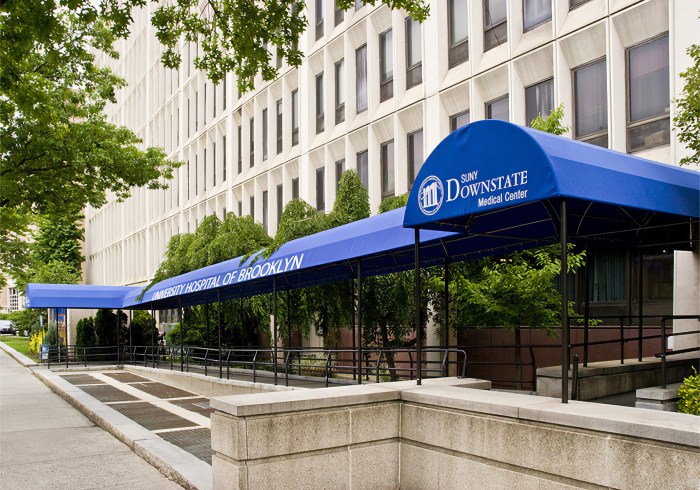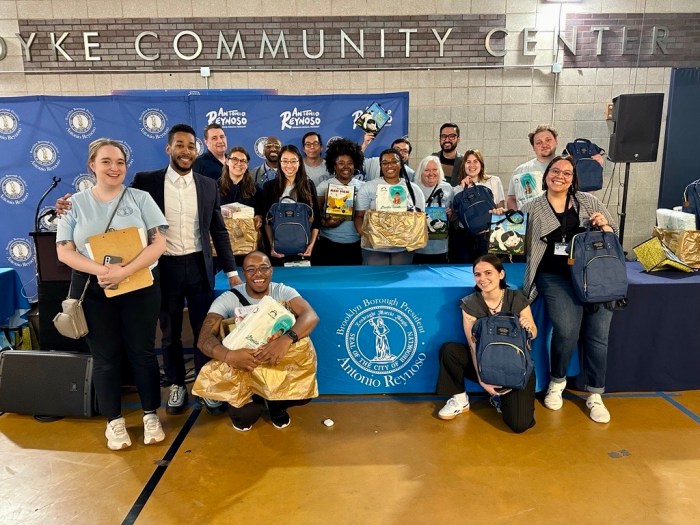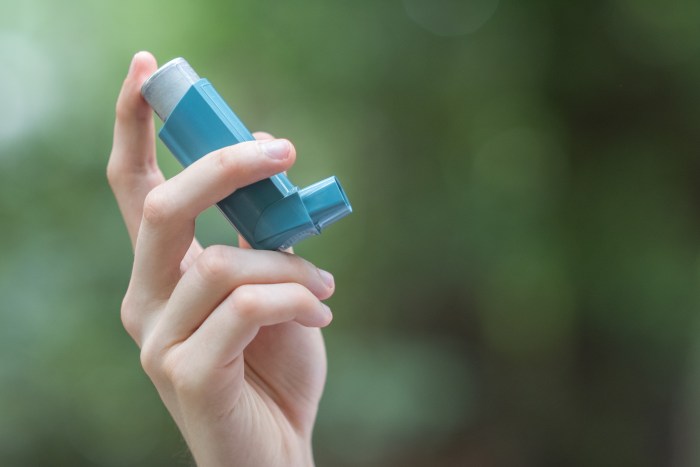A Trauma Recovery Center opened in Coney Island on Wednesday, promising support and services for local crime victims and their families.
The Mermaid Avenue center, part of the Jewish Community Council of Greater Coney Island, will offer free counseling and “fundamental assistance” for people grappling with the aftermath of assault, domestic violence, hate crimes, and more — with the ultimate goal of “Post-Traumatic Growth.”
“JCCGCI’s Trauma Recovery Center is changing the landscape of mental health care in underserved communities, improving access to resources for Brooklyn residents impacted by trauma and violence,” said Dr. Moshe Wiener, Executive Director of JCCGCI. “With the incredible support of Speaker Adams and the New York City Council, we have been enabled to save and improve lives across the borough, and we are just getting started.”
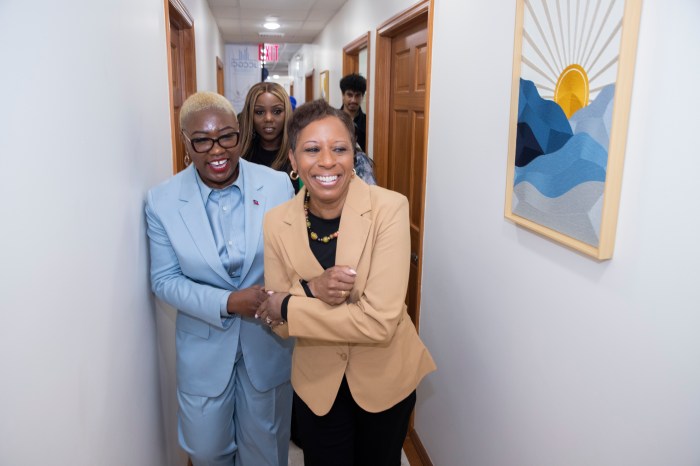
The center is headed by Dr. Dulande Louis, a social worker who previously served as the Associate Director at Global Trauma Research — a group focused on providing culturally-responsive trauma services to the city’s Caribbean population.
Louis said she and the JCCGCI team are “humbled and grateful for the opportunity to fill a tremendous service gap for a notoriously overlooked and underserved population.”
“We are thankful to City Council Speaker Adrienne Adams and all our devoted government partners for their commitment to ensuring comprehensive mental health services for survivors of violent crime and trauma and for supporting our intentional efforts of meeting our participants where they are,” Louis added.
A total of five Trauma Recovery Centers — including the new Coney Island center – have opened in New York City this year, funded by a $5 million investment by the City Council. Council Speaker Adrienne Adams said TRCs serve violence survivors who often “fall through the cracks” of traditional support services.
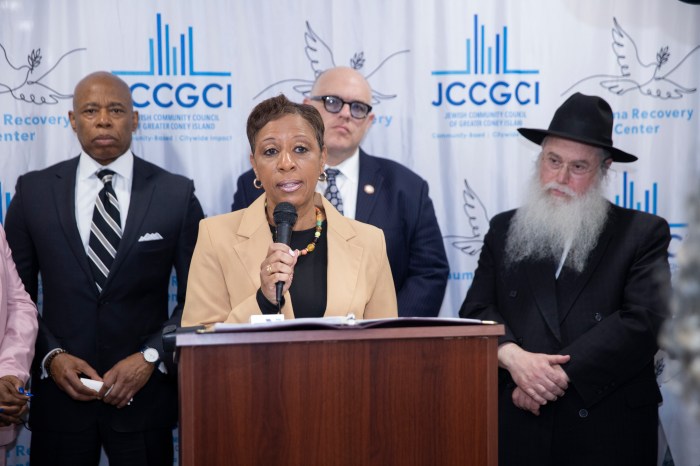
The Council is calling for $7.2 million in baseline funding to permanently maintain the TRCs — and to open two new locations – in the Fiscal Year 2025 budget.
“Trauma recovery centers should be a pillar of our public safety infrastructure to support underserved crime victims and communities harmed by the trauma of violence inflicted in our neighborhoods,” Adams said in a statement. “With the opening of the new TRC in Coney Island, Brooklyn residents will have improved access to critical services that help them recover from trauma and stop cycles of violence.”
Guided by the National Alliance of Trauma Recovery Centers, TRCs are intended to reach survivors who struggle to access traditional mental health and social services.
In addition to mental and physical health services, TRCs offer legal assistance, and can help survivors file for victims’ compensation and support them as they work with law enforcement after a crime. Counselors can also help their clients communicate with their landlords and bosses, to ensure they stay safe and housed while working through a traumatic event.
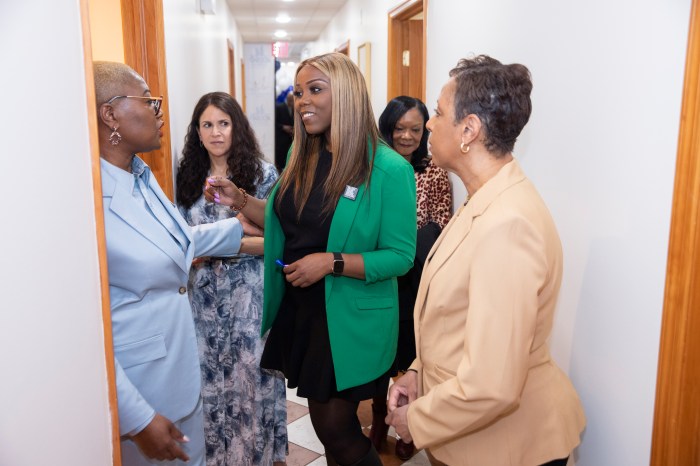
Southern Brooklynites have long called for additional mental health and anti-violence services in their neighborhoods. Though overall crime is down in the Brooklyn South patrol, the latest NYPD data show that the community has seen 60 rapes, 913 felony assaults, and 17 homicides so far this year.
Local Council Member Justin Brannan said in a statement that the city cannot rely only on more police to address crime, and should focus on holistic approaches with long-term benefits.
“Even as more people seek out treatment for mental health issues, many don’t immediately recognize the connection between their current struggles and their history of unprocessed traumatic experiences,” Brannan said. “Indeed, cycles of violence continue when trauma goes unchecked and victims lack the services and support they need to heal. Removing barriers so people can access culturally competent, trauma-informed, evidence-based mental health care is crucial, especially in communities of color.”


